“My wife loves whales.”
This was the first statement out of my mouth . . .
. . . when early last semester one of the girls asked me a question about eschatology. You should have seen their faces. What did “whales” have to do with Jesus returning to earth? My explanation, however, would far surpass the time given for these remarks. Suffice it to say, from that day on, every class period began with one of the seniors drawing a whale on the white board. I have some pictures of some of those Picasso-esque portraits if you care to see.
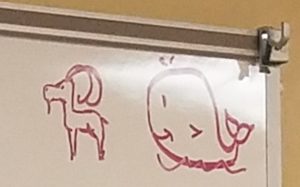 In the second semester, our graduates discovered that G.O.A.T. in our cultural conversation means, “Greatest Of All Time.” Since Robin was remembered every day with a whale it was decided that I should be remembered with a GOAT. The ladies had the best of intentions believing me to be the greatest teacher of all time. But I told them that they would have many more teachers and I would soon fade from memory. They were horrified when I said this thinking it would never be. I have no pictures of the goats. They weren’t as easy to draw as the whales.
In the second semester, our graduates discovered that G.O.A.T. in our cultural conversation means, “Greatest Of All Time.” Since Robin was remembered every day with a whale it was decided that I should be remembered with a GOAT. The ladies had the best of intentions believing me to be the greatest teacher of all time. But I told them that they would have many more teachers and I would soon fade from memory. They were horrified when I said this thinking it would never be. I have no pictures of the goats. They weren’t as easy to draw as the whales.
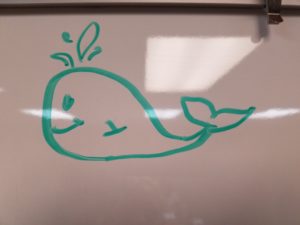 With all the talk of whales, I will spare you the usual whale metaphors: “This is a whale of class!” “I whalely like our seniors!” and the ever popular “We have a whale of a good time!” When you have a class as small as the 2018 TMS graduating class you get to know each other pretty well. At any given moment various conversations would erupt between two of the girls which would then entice the rest of them to contribute their effervescent exuberances. It never seemed to matter that class was still going on or that I might still be talking.
With all the talk of whales, I will spare you the usual whale metaphors: “This is a whale of class!” “I whalely like our seniors!” and the ever popular “We have a whale of a good time!” When you have a class as small as the 2018 TMS graduating class you get to know each other pretty well. At any given moment various conversations would erupt between two of the girls which would then entice the rest of them to contribute their effervescent exuberances. It never seemed to matter that class was still going on or that I might still be talking.
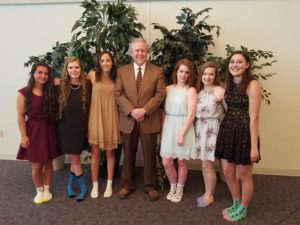 This group has the distinction of being the only class I have taught in 35 years which is comprised entirely of young ladies. I have some sense of what it must feel like to be a father of all girls. Not only are you outnumbered (six to one), you are outgunned (they talk much faster than I do), you are outmaneuvered (a woman’s logic is not like a man’s logic), and out-thought (about the time you figure out what you should say in a given situation the conversation has changed). Trust me on this point. Not only did I have a class of all girls, but I have been married for 39 years.
This group has the distinction of being the only class I have taught in 35 years which is comprised entirely of young ladies. I have some sense of what it must feel like to be a father of all girls. Not only are you outnumbered (six to one), you are outgunned (they talk much faster than I do), you are outmaneuvered (a woman’s logic is not like a man’s logic), and out-thought (about the time you figure out what you should say in a given situation the conversation has changed). Trust me on this point. Not only did I have a class of all girls, but I have been married for 39 years.
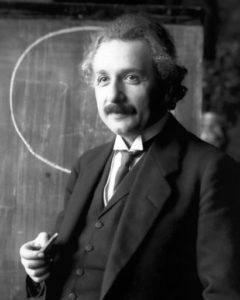 This class has suffered my teaching not just as seniors but also as juniors when I taught the junior World Lit course. I once asked them as seniors how their views of me changed from junior to senior year. As juniors they told me they had a certain level of fear: I was big, I was a big man, I used big words. When I asked them if anything had changed from last year to this year, they all erupted in a full blown discussion about their senior year. They did not include me in the discussion. They never answered the question. Any fear, it seems, was gone.
This class has suffered my teaching not just as seniors but also as juniors when I taught the junior World Lit course. I once asked them as seniors how their views of me changed from junior to senior year. As juniors they told me they had a certain level of fear: I was big, I was a big man, I used big words. When I asked them if anything had changed from last year to this year, they all erupted in a full blown discussion about their senior year. They did not include me in the discussion. They never answered the question. Any fear, it seems, was gone.
 I wear Crocs as footwear. Like students I have taught in other venues, my Crocs have always been a point of interest. Inevitably, before class would begin, the girls would look to see that I had my Crocs on. Again, for those unfamiliar, Crocs have holes in them; not a good choice of footwear on rainy days. I could count on a question about my Crocs on rainy days. It seems the ladies could not fully comprehend why I would not wear Crocs in the rain. But, as I’ve said, a woman’s logic is not like a man’s.
I wear Crocs as footwear. Like students I have taught in other venues, my Crocs have always been a point of interest. Inevitably, before class would begin, the girls would look to see that I had my Crocs on. Again, for those unfamiliar, Crocs have holes in them; not a good choice of footwear on rainy days. I could count on a question about my Crocs on rainy days. It seems the ladies could not fully comprehend why I would not wear Crocs in the rain. But, as I’ve said, a woman’s logic is not like a man’s.
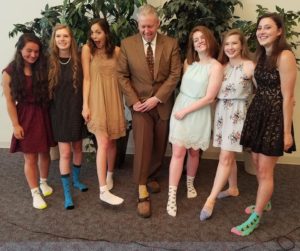 Socks were also a point of interest in class. You see, I like socks. I like bright colors. I like socks that do not match but make a bold statement. Occasionally the seniors would make a comment about my socks. They would occasionally ask me to show what socks I had on. They were never disappointed. Of course, this being a class of young women, purchasing clothing is a high priority item. It may come as no surprise to you that the ladies began to purchase socks. The socks, however, were not for me, but for my wife. The socks had whales on them. Robin didn’t teach the class, I taught the class. One would think the gifts would be for the teacher. That would be me. But again, I have male logic, which does not apply here.
Socks were also a point of interest in class. You see, I like socks. I like bright colors. I like socks that do not match but make a bold statement. Occasionally the seniors would make a comment about my socks. They would occasionally ask me to show what socks I had on. They were never disappointed. Of course, this being a class of young women, purchasing clothing is a high priority item. It may come as no surprise to you that the ladies began to purchase socks. The socks, however, were not for me, but for my wife. The socks had whales on them. Robin didn’t teach the class, I taught the class. One would think the gifts would be for the teacher. That would be me. But again, I have male logic, which does not apply here.
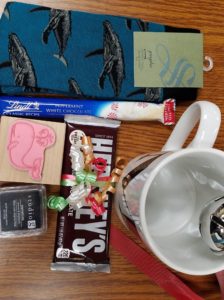 As I mentioned, I’ve been teaching for 35 years. In those 35 years, as I told the ladies, I received only one, but very memorable Christmas gift as a high school teacher. The gift was half a Hershey candy bar rewrapped in foil. High school teachers notoriously receive few if any gifts. [On a side note, my wife Robin is a second grade teacher. Every Christmas she brings home her haul of candy, presents, and gift cards. Thankfully she shares the spoils with me since we’re married. You can send candy, presents, & gift cards to me at 11150 Plum Hollow Circle, Fishers. But I digress…] So since hearing my story about half a Hershey’s candy bar, the class feted me with gifts this past Christmas. One of the gifts were full Hershey bars wrapped in their original wrappers. This event is only one of the many reasons I will miss this class.
As I mentioned, I’ve been teaching for 35 years. In those 35 years, as I told the ladies, I received only one, but very memorable Christmas gift as a high school teacher. The gift was half a Hershey candy bar rewrapped in foil. High school teachers notoriously receive few if any gifts. [On a side note, my wife Robin is a second grade teacher. Every Christmas she brings home her haul of candy, presents, and gift cards. Thankfully she shares the spoils with me since we’re married. You can send candy, presents, & gift cards to me at 11150 Plum Hollow Circle, Fishers. But I digress…] So since hearing my story about half a Hershey’s candy bar, the class feted me with gifts this past Christmas. One of the gifts were full Hershey bars wrapped in their original wrappers. This event is only one of the many reasons I will miss this class.
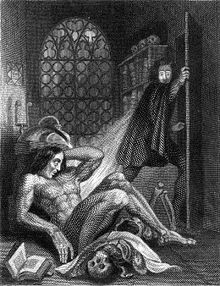 I remember well the day I told the six seniors, “You will never have a class like this again.” Their collective demeanor changed from happy to sad. We have such a good rapport with each other that the learning we have done is woven through our intellectual sinews. I have multiple pictures on my phone of the classroom white board taken immediately after our class. These pictures would make no sense to anyone else but us. Like all education should be, a dialogue full of questions and explorations moves us from our subject to other subjects back to our subject again. We might be interacting with a question about Oscar Wilde’s The Picture of Dorian Gray which in turn could connect us to the Roman historian Tacitus, the Russian psychologist Vygotsky, the Czech president Vaclav Havel, the Auschwitz survivor Viktor Frankl, the writings of Edmund Burke, and back again to Dorian Gray. They have learned one of the key approaches to all of life: everything is interwoven with everything else. We talk about interdisciplinarity because, as Paul says in Colossians 1, by Jesus are all things held together.
I remember well the day I told the six seniors, “You will never have a class like this again.” Their collective demeanor changed from happy to sad. We have such a good rapport with each other that the learning we have done is woven through our intellectual sinews. I have multiple pictures on my phone of the classroom white board taken immediately after our class. These pictures would make no sense to anyone else but us. Like all education should be, a dialogue full of questions and explorations moves us from our subject to other subjects back to our subject again. We might be interacting with a question about Oscar Wilde’s The Picture of Dorian Gray which in turn could connect us to the Roman historian Tacitus, the Russian psychologist Vygotsky, the Czech president Vaclav Havel, the Auschwitz survivor Viktor Frankl, the writings of Edmund Burke, and back again to Dorian Gray. They have learned one of the key approaches to all of life: everything is interwoven with everything else. We talk about interdisciplinarity because, as Paul says in Colossians 1, by Jesus are all things held together.
 The key to learning this way, of course, is knowledge of content. Yes, we read five Gothic horror novels first semester, but students had to research context outside those books to fully comprehend times, places, people, and attitudes. To realize that gargoyles were not portraits of evil but reminders that evil may be present, is an important cultural understanding. Architecture, portrayals of women in a patriarchal society, the history of vampirism, or the impact of Christian thinking on unbelieving writers, all matters. Not only do our seniors ask excellent questions but they thirst for knowledge as well.
The key to learning this way, of course, is knowledge of content. Yes, we read five Gothic horror novels first semester, but students had to research context outside those books to fully comprehend times, places, people, and attitudes. To realize that gargoyles were not portraits of evil but reminders that evil may be present, is an important cultural understanding. Architecture, portrayals of women in a patriarchal society, the history of vampirism, or the impact of Christian thinking on unbelieving writers, all matters. Not only do our seniors ask excellent questions but they thirst for knowledge as well.
 Expanding vocabulary is part of knowledge expansion. We would encounter a word of the day in any given class, often preceded by my question, “Do you know the word ___ ?” Some of our words included: Nonplussed, Salient, Profligate, Inclusio, Seminal, Histoplasmosis, and Ethnography. We also discussed philosophical, scientific, theological, sociological ideas such as: Thesis-antithesis, theology-sociology, Underdeveloped frontal brain lobes, brain research, post-partum depression, ecclesiology, preaching, (‘if there is mist in the pulpit, there will be fog in the pew’), and something we call the S.P.U.D. Test: we test knowledge based on what is sensible, practical, universal, and dependable. You want to know how I know that your TMS grads are bright, expressive, honest, transparent, creative, and committed? They care about and will care for the learning entrusted to them.
Expanding vocabulary is part of knowledge expansion. We would encounter a word of the day in any given class, often preceded by my question, “Do you know the word ___ ?” Some of our words included: Nonplussed, Salient, Profligate, Inclusio, Seminal, Histoplasmosis, and Ethnography. We also discussed philosophical, scientific, theological, sociological ideas such as: Thesis-antithesis, theology-sociology, Underdeveloped frontal brain lobes, brain research, post-partum depression, ecclesiology, preaching, (‘if there is mist in the pulpit, there will be fog in the pew’), and something we call the S.P.U.D. Test: we test knowledge based on what is sensible, practical, universal, and dependable. You want to know how I know that your TMS grads are bright, expressive, honest, transparent, creative, and committed? They care about and will care for the learning entrusted to them.
 Stories help expand, illustrate, and apply learning. And I told lots of stories in this class. Here are a few examples from this year. I told the ladies that around resurrection celebration I would tell past high school classes that I wanted to plant a sign in my front lawn that said, “Death to the Bunny,” since rabbits have overtaken the importance of the resurrection in our culture. “My job is to write really good academic papers” was my response to a question about how I share my faith at IUPUI. I take courses there in my work at The Comenius Institute.
Stories help expand, illustrate, and apply learning. And I told lots of stories in this class. Here are a few examples from this year. I told the ladies that around resurrection celebration I would tell past high school classes that I wanted to plant a sign in my front lawn that said, “Death to the Bunny,” since rabbits have overtaken the importance of the resurrection in our culture. “My job is to write really good academic papers” was my response to a question about how I share my faith at IUPUI. I take courses there in my work at The Comenius Institute.
 But the most important story told this year was a story told through one of our assignments. I believe that educators must do a better job of connecting the heart of knowledge to the heart of the person. So at the end of our Gothic horror literature class, I had the young women write a response to the question, “How did reading Gothic horror literature affect me, change something inside myself?”
But the most important story told this year was a story told through one of our assignments. I believe that educators must do a better job of connecting the heart of knowledge to the heart of the person. So at the end of our Gothic horror literature class, I had the young women write a response to the question, “How did reading Gothic horror literature affect me, change something inside myself?”
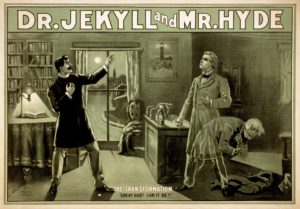 Now before I tell you the punch line to this story you have to understand how horrific it is for some adults to find out that we study books like Dracula, Frankenstein, or Dr. Jekyll and Mr. Hyde in a home school group. [On a side note, I have written extensively about why the horror genre is closest to the Christian view of life. If you’re interested I would be glad to discuss it with you afterward.] You see, these stories we read and discuss are morality plays. Human nature is nowhere better understood than when we consider why Dr. Moreau thought he could remake animals in his image. We understand our true nature when we identify with the decaying portrait of Dorian Gray. And we begin to realize the tension between our dignity and depravity when reading about Dr. Jekyll and Mr. Hyde.
Now before I tell you the punch line to this story you have to understand how horrific it is for some adults to find out that we study books like Dracula, Frankenstein, or Dr. Jekyll and Mr. Hyde in a home school group. [On a side note, I have written extensively about why the horror genre is closest to the Christian view of life. If you’re interested I would be glad to discuss it with you afterward.] You see, these stories we read and discuss are morality plays. Human nature is nowhere better understood than when we consider why Dr. Moreau thought he could remake animals in his image. We understand our true nature when we identify with the decaying portrait of Dorian Gray. And we begin to realize the tension between our dignity and depravity when reading about Dr. Jekyll and Mr. Hyde.
 Back to our story. So our seniors had to address the question, “How did reading this literature affect my person, my understanding about myself?” Professors wait for these moments, moments which define when true learning has occurred. So each young lady began to explain what they had learned. To a person, Ruth, Meg, Eliza, Elizabeth, McKinley, and Abigail all said the same thing. “After reading Gothic horror I came to realize that the real horror is inside me.”
Back to our story. So our seniors had to address the question, “How did reading this literature affect my person, my understanding about myself?” Professors wait for these moments, moments which define when true learning has occurred. So each young lady began to explain what they had learned. To a person, Ruth, Meg, Eliza, Elizabeth, McKinley, and Abigail all said the same thing. “After reading Gothic horror I came to realize that the real horror is inside me.”
 Think about those responses for just a moment. If every young person in this culture would be so moved by literature that they would come to the place early in their lives – uncompelled by their instructor – that they first bore responsibility for evil in themselves, imagine how our world would change?! Self-restraint would replace state-regulation. Internal compulsion would eliminate external controls. Or said simply, if you control yourself, no one else will have to. Whenever I talk about this class, I tell that story. That story where all six students came to the same conclusion at the same time is testimony to the character of these young ladies. The story speaks to the power of literature to change lives. The story reiterates Jesus’ statement that “It’s what comes from within a person that makes them unclean.”
Think about those responses for just a moment. If every young person in this culture would be so moved by literature that they would come to the place early in their lives – uncompelled by their instructor – that they first bore responsibility for evil in themselves, imagine how our world would change?! Self-restraint would replace state-regulation. Internal compulsion would eliminate external controls. Or said simply, if you control yourself, no one else will have to. Whenever I talk about this class, I tell that story. That story where all six students came to the same conclusion at the same time is testimony to the character of these young ladies. The story speaks to the power of literature to change lives. The story reiterates Jesus’ statement that “It’s what comes from within a person that makes them unclean.”
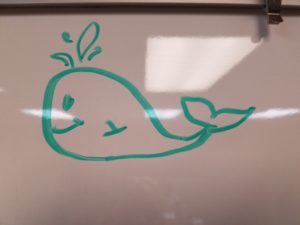 The story ends where we began: this is one whale of a class.
The story ends where we began: this is one whale of a class.
Mark is President of The Comenius Institute (website), spends time with Christian young  people in public university (1 minute video), hosts a weekly radio program with diverse groups of guests (1 minute video), interprets culture from a Christian vantage point (1 minute video)
people in public university (1 minute video), hosts a weekly radio program with diverse groups of guests (1 minute video), interprets culture from a Christian vantage point (1 minute video)
Picture credit: snappygoat.com

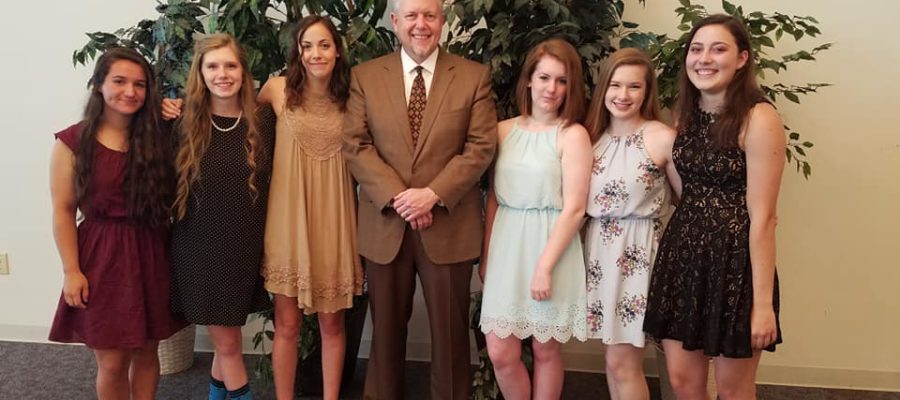
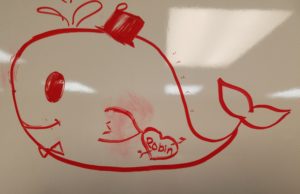
As always, after speaking or listening to you, I feel as though I received something freely, for which I should have paid.
You leave a “trust” with each class you teach (and even each person you meet)! They are blessed to have been taught by you and you have been blessed by the joy they found in this exceptional learning process!!
Dr. Eckel,
Thanks for the article. Sounds like it was a great class! I’m glad that the literature made them introspective and to reflect on their own faults and sinfulness. Such reflection seems to be in great lack these days. And what sweethearts, giving you and your wife gifts like that. I should have brought you gifts as well when I was under your teaching (though, I feel like I still am). On occasion, I would bring Dr. Piotrowski an apple (a really awesome one, like honeycrisp), and one time I got him some chocolate ice cream. But that was after you had already left CBC. Darn it!
I understand the response people have when they hear that you’re studying horror fiction in a church group. Reminds me of the stares I get when I tell people that I’m a Christian horror writer.
Such things *do* exist!
I, also, am a student at IUPUI, so I understand what you mean about “write really good papers”. I weave my Christian principles into my understanding of library work, and it shows in forum discussions as well as other works. Servanthood and Stewardship. Christian principles that make for a good librarian in a post-Christian world.
Thanks for the article, Dr. Eckel!
Well said brother and what blessing to have experienced the effect that trust in relationship has in the process of Formation. You know this well since you demonstrate it with an apparent effortless grace. We know that I have been an Eckelite for some time now. Continue to change the world. To me, you are still a Rainbow Unicorn. Bless you brother.
Blood Certified,
B
This was really great to read! Makes me thankful for the education I received at the masters study. It was such a gift to experience learning in such a unique setting!